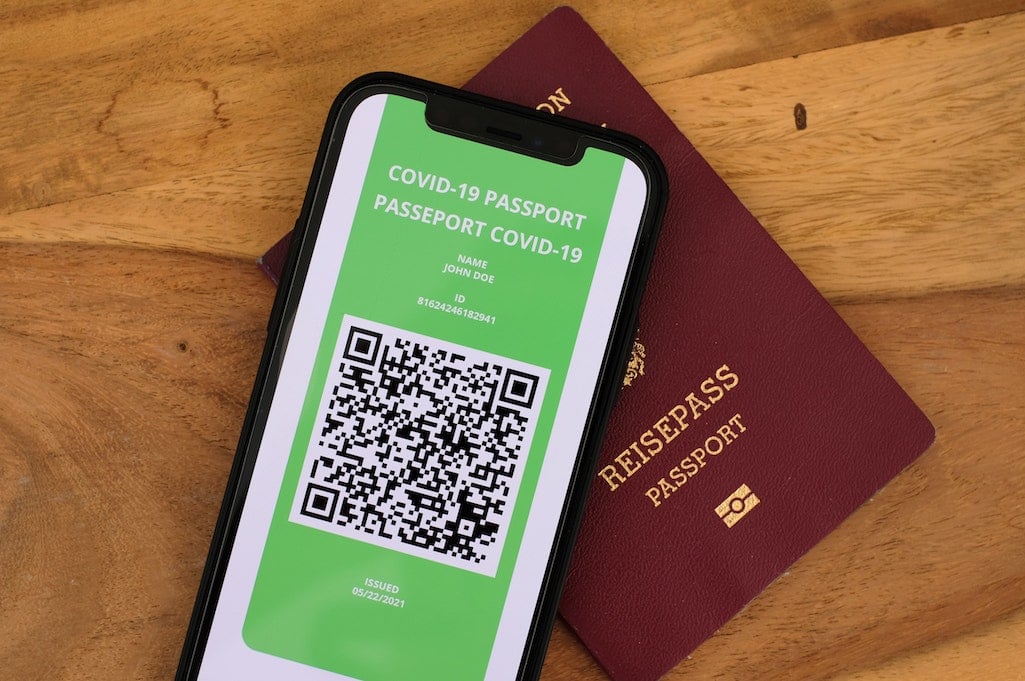The government announced on Monday (19 July) that Covid certification will become mandatory for ‘crowded venues’ from the end of September.
In a press briefing, Boris Johnson said proof of a negative test will no longer be enough and that “some of life’s most important pleasures and opportunities are likely to be increasingly dependent on vaccination”.
Speaking from Chequers, where he is currently self-isolating, Johnson said: “I should serve notice now that by the end of September, when all over-18s will have had their chance to be double-jabbed, we are planning to make full vaccination the condition of entry to nightclubs and other venues where large crowds gather.”
He did not specify which other venues would be included, which raises questions over how the new rules might impact on large business events such as conferences, exhibitions, and trade shows.
The announcement was made on ‘Freedom Day’ which saw the majority of legal Covid restrictions lifted and replaced with government guidance.
Event guidance
New guidance was published for the events industry last week, and here are a few of the highlights…
Assess the risks relevant to your event and put in place practical measures to reduce them.
Follow the steps in the section on risk assessments and pay particular attention to the advice for events. This sets out the key risks for events identified by the Events Research Programme and can help you to understand how the characteristics of your event may affect the risk of COVID-19 transmission, and which mitigations are likely to be most appropriate.
Engage with local authorities and other relevant bodies early in your event planning process, to ensure your event can take place as safely as possible.
Ensure that your event takes place in line with relevant guidance.
Review any relevant guidance for facilities in your venue, such as cafes and bars, shops or close contact services.
Consider displaying an NHS QR code so that customers can check in using the NHS COVID-19 app.
You are no longer required to collect customer contact details or keep a record of your staff and visitors. However, you are advised to continue to display an NHS QR code for customers wishing to check in using the app, as this will help to reduce the spread of the virus and protect your customers, visitors, and staff. You do not have to ask customers to check in, or turn them away if they refuse.
Consider using the NHS COVID Pass to reduce the risk of transmission at your venue or event.
The NHS COVID Pass allows people to demonstrate that they are at a lower risk of carrying COVID-19 and transmitting it to others, through vaccination, testing or natural immunity. It can help organisations to reduce the risk of transmission of COVID-19. The Government will work with organisations that operate large, crowded settings where people are likely to be in close proximity to others outside their household to encourage the use of the NHS COVID Pass.
Ensure your risk assessment includes protocols for managing suspected or confirmed cases amongst attendees.
Take steps to reduce the risk of transmission at the event, including putting in place cleaning and hygiene protocols, and ensuring your venue has adequate ventilation.
If you are not the venue owner/operator or are hiring a venue for your event, ensure you discuss ventilation and cleaning with the venue operator, to check you are comfortable with their risk management protocols. You should agree with the venue in advance any additional measures you will take to manage risk, such as opening windows to increase ventilation.
Encourage customers and visitors to wear face coverings, for example through signage, if your facility or event is likely to include enclosed and crowded spaces.
Put in place a communications plan to ensure relevant information on COVID-19 measures is communicated to attendees before and during the event.

